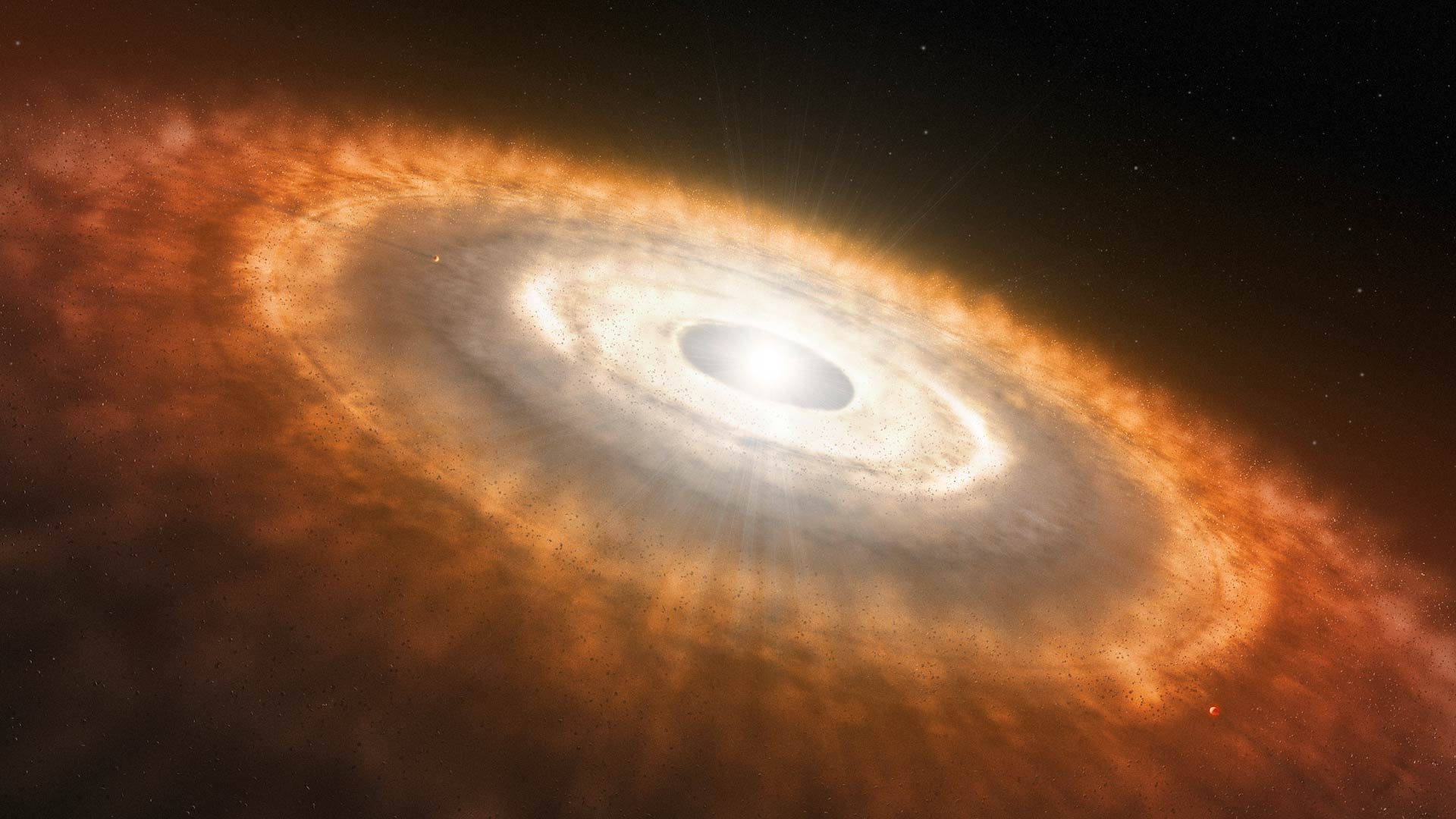 Artist's rendering of a protoplanetary disk surrounding a young star.
Artist's rendering of a protoplanetary disk surrounding a young star.
The University of Arizona-backed James Webb Space Telescope continues to generate new knowledge about the universe.
Scientists used data from the telescope for an updated study on how planets form. U of A planetary scientist Illaria Pascucci notes examining young stars and exoplanets means looking back into the distant past.
"This particular study in science is looking at a star that is about 2 million years old," she said. "It seems like an old age but in comparison with our own star's life that's really young."
The James Webb Space Telescope's extended range lets scientists look further into the cosmos than ever before. Pascucci's study concentrates on the molecules found in gasses surrounding new stars.
Her team's work was published last week in the journal [Science] (https://www.science.org/doi/10.1126/science.adi8147).

By submitting your comments, you hereby give AZPM the right to post your comments and potentially use them in any other form of media operated by this institution.